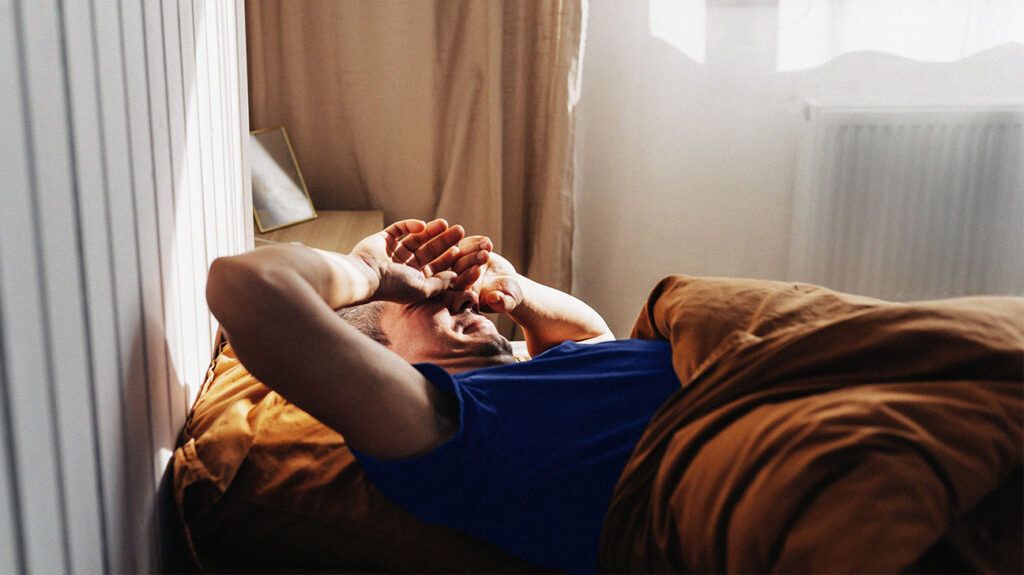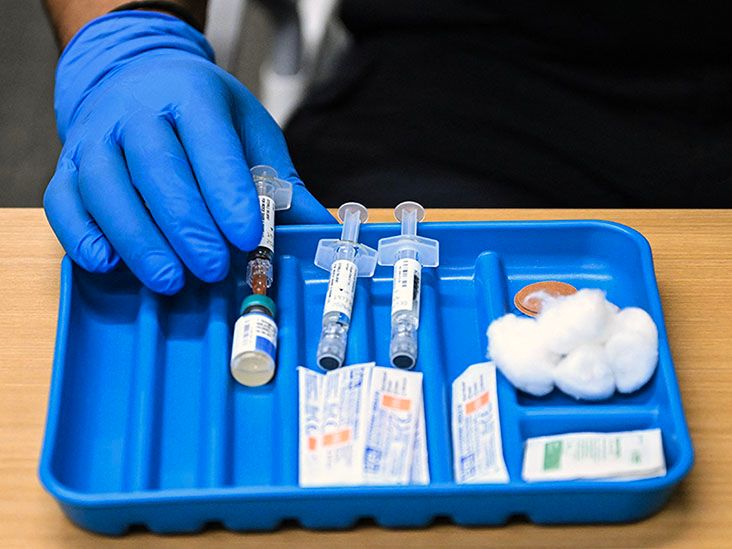Prostate cancer and treatments for it can cause a person to experience fatigue. Prostate cancer fatigue is a common symptom of advanced prostate cancer.
Prostate cancer is the most common cancer affecting males in the United States. It occurs when abnormal cells in the prostate gland begin to divide and grow uncontrollably.
Prostate cancer fatigue can cause a person to experience a number of symptoms, including reduced energy and decreased mental health.
This article provides an overview of prostate cancer fatigue and outlines what the main causes of it are.
A note about sex and gender
Sex and gender exist on spectrums. This article will use the terms “male,” “female,” or both to refer to sex assigned at birth. Click here to learn more.

Fatigue is a
Prostate cancer treatment
Prostate cancer treatments are a
Androgen deprivation therapy (ADT) is a type of hormone therapy that healthcare professionals can use
Androgens are male hormones that help prostate cancer cells grow. ADT lowers the androgen levels in the person’s body. This can help stop the hormones from reaching cancer cells, which can slow the growth of prostate cancers or cause the cancer to shrink. ADT may also cause a person to experience fatigue.
Radiation therapy is another
The radiation may come from an external machine or radioactive materials that a healthcare professional implants into the body. These high-energy rays or particles kill cancer cells.
Fatigue is a possible side effect of radiation therapy. It may last for a period of time and not go away for weeks or months after the person has completed the treatment.
Prostate cancer affects hormones
Prostate cancer
Changing hormone levels can cause a number of side effects. One of these side effects is fatigue.
Other factors that may cause a person with prostate cancer to experience fatigue
- Problems sleeping: People with prostate cancer
may experienceTrusted Source disrupted sleep. This can contribute to the feeling of fatigue. - Pain: People with advanced prostate cancer may
experienceTrusted Source high levels of pain. Pain can contribute to fatigue in a number of ways. Treatments for pain may also contribute to fatigue. - Emotional impact of cancer: Prostate cancer may cause a person to feel anxious or fearful. This distress can cause physical problems to develop, including fatigue. Other physical problems that may arise due to distress include insomnia and appetite loss.
- Depression: Depression is
a commonTrusted Source psychological disturbance that medical professionals associate with cancer. Fatigue is one of the symptoms of depression.
Fatigue is the term for an
Prostate cancer fatigue can cause a person
- a lack of energy, leading them to feel extremely:
- tired
- lethargic
- drained
- difficulty thinking clearly
- difficulty remembering things
- mental exhaustion
- emotional exhaustion
- difficulty moving and feeling heavy or slow
Prostate cancer fatigue may not improve after sleep and can last for a while after cancer treatment ends.
Prostate cancer fatigue is common.
One 2021 systematic review analyzed 14 studies that involved 4,763 people with prostate cancer. It found that
A 2024 roundtable discussion and literature review stated that cancer and cancer treatment caused cancer-related fatigue in
A number of
Possible physical activities that may help improve prostate cancer fatigue include:
- walking
- aerobic training
- weightlifting
- team or individual sports, such as football or golf
Studies also show that education and cognitive behavioral therapy (CBT) can be helpful in reducing cancer-related fatigue.
CBT is a form of psychotherapy that helps a person to change thinking patterns and change behavioral patterns.
CBT and education can also help a person with prostate cancer to exercise to the best of their ability. These approaches can help a person to mentally cope with the physical challenge that exercise may present.
What does cancer fatigue feel like?
Cancer fatigue
At what age is prostate cancer most aggressive?
Prostate cancer most commonly affects older people. Around
However, sometimes prostate cancer does develop in younger people.
Studies show that people who are 55 years old or younger often present with less aggressive prostate cancer. People who are older often experience more aggressive prostate cancer.
What are the main symptoms of prostate cancer?
During the early stages of prostate cancer, a person
In the later stages, a person
Prostate cancer resources
Visit our dedicated hub for more research-backed information and in-depth resources on prostate cancer.
Prostate cancer fatigue is a common symptom of prostate cancer. It can cause a person to experience a lack of energy, difficulty thinking clearly, memory problems, emotional exhaustion, and difficulty moving.
It may occur due to prostate cancer affecting a person’s hormone levels or due to certain prostate cancer treatments.
Other symptoms or side effects of prostate cancer that can contribute to fatigue include sleep problems, the emotional effect of having cancer, pain, and depression.
A person can use exercise, CBT, and education to help reduce their prostate cancer fatigue.


